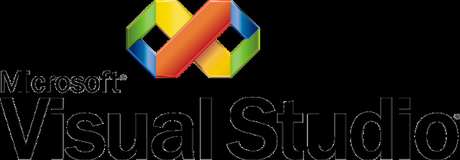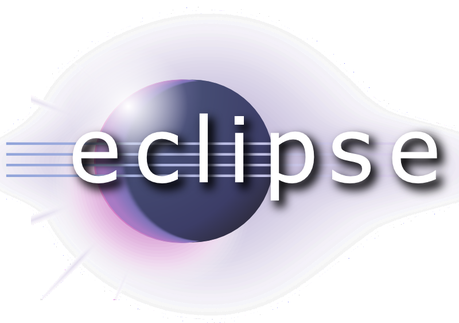The selection of Integrated Development Environment (IDE) is likely to be the foremost thing to strike your mind while you decide to start developing an application. But why? Because it provides you with an accomplished programming environment that comprises almost everything desired to let you program your dream app without hassles. To be precise, the IDE brings the compiler, debugger, code editor and the GUI and a gamut of other facilities, all in a single window. While there is a roster of IDEs that you can use, Microsoft Visual Studio and Eclipse stand apart from the rest in terms of features, facilities and functionalities. Let’s have a close look into these environments and know how they score on varied aspects.
Microsoft Visual Studio

Source: inside
Whether you want to create a happening app for Microsoft platform or some other, Visual Studio is always worthwhile IDE for your cause. Its enriched gamut of tools and services help you significantly in transforming your imaginations into reality. It assures better agility and lets you:
- Work from any virtual location
- Develop mission-critical apps
- Write fast code
- Test and debug a HTML/JavaScript app connected through cloud.
- Write code in Visual C++, VB.NET, C#, and F# among other languages
Version
Each of the versions of Visual Studio, from 97 to 2013 has offered something fresh for the developers, be it to provide same IDE for multiple languages, as in 97 or the support for WinRT and C++/CX in Visual Studio 2012. Various editions from 1995 to 2013 thus include:
- Visual Studio
- Visual Studio 97
- Visual Studio 6.0
- Visual Studio. NET 2002
- Visual Studio. NET 2003
- Visual Studio 2005
- Visual Studio 2008
- Visual Studio 2010
- Visual Studio 2012
- Visual Studio 2013
Microsoft Visual Studio also offers a set of individual IDEs bundled together in Visual Studio Express Editions. These IDEs use MSDN Essentials Library and have support for languages as given below:
- Visual Basic Express
- Visual C++ Express
- Visual C# Express
- Visual Web Developer Express
- Express for Windows Phone
Features
Both the recent versions of Visual Studio, i.e., 2012 and 2013 are among the most reliable IDEs for app developers to work on owing to the multifaceted features they assure:
Microsoft Visual Studio 2012
- Dark (Black on White) theme that is more soothing to the eyes of developers
- Quick Launch to search and locate commands and menu options quickly
- Pin the tabs that you often need to work on
- Use search options in multiple windows including Toolbox and Solution Explorer
- Check HTML/CSS of a webpage using Page inspector
Microsoft Visual Studio 2013
- Find all your settings intact while using Visual Studio 2013 on different computers. All you need is to sign in to the IDE through your Hotmail or Live account.
- While in debug mode, see visual representation of your code’s execution using CodeMap
- Know more about a particular code section using Code Lens. You can find it in the code editor, at the top of every method.
- The new Browser Link refreshes the browser window, which runs the web application
- The new Blue theme is available in addition to the previously used Dark theme.
Eclipse

Source: eclipse
Unlike Visual Studio, Eclipse is a free and open source IDE that forms the backbone of a slew of development frameworks. It is mostly written in Java and comprises an extensible plug-in system to modify the coding environment accordingly. Developers can use it to code enterprise web applications and that for other verticals in a number of languages including Java, C, C++, PHP, Perl, Python, Ruby, etc.
Versions
Eclipse has been regular on releasing its new editions since 2004, these include:
- Eclipse 3.0
- Eclipse 3.1
- Callisto (3.2)
- Europa (3.3)
- Ganymede (3.4)
- Galileo (3.6)
- Helios (3.6)
- Indigo (3.7)
- Juno (4.2)
- Kepler (4.3)
- Luna (4.4)
Plugins
Some of the widely used Eclipse plug-ins include:
- Subclipse
- oXygen
- EclipseSQLExplorer
- RadRails
- Jalopy
Features
- Replace an old method with a new one by simply renaming (or Refactoring) the original script.
- Apply coding standard across the entire team by simply asking the team members to check-in to the code only after running the Clean Up Wizard.
- Enhanced support for patch files to enable them span across multiple projects
- Annotations feature in any of the source files to notice the changes made in that particular file.
- Smart compiler that figures out the instances of accessing a null variable or looking out for the possibility of a null when it is not there.
Comparison
Both the IDEs are well accomplished and have their respective admirers. Still they differ significantly and have certain features that are mutually exclusive. Some of the comparison points between the two IDEs are given here:
Usability:
The two environments offer a whole lot of features that vouch for their usability, Perspective is one such organization feature in Eclipse that consists of an assemblage of windows and layout settings. The IDE also allows you to shift between perspectives while working on assorted project aspects. Visual Studio, however, lags behind in any such feature. But it does let you to import/export settings. Additionally, it also consists of a third party plugin that resembles Perspective to some extent in feature.
Coding:
While working on Visual Studio, if you don’t find the source code of a type, it automatically constructs the source code view in C# or VB, in whichever language you are coding. All you need is to go to the type’s definition. In Eclipse, you can see the definition with the help of metadata, but it does not construct the Java source code. However, it does provide other important features such as automatic builds that enables project to rebuild each time you save a change. Autofix is another Eclipse feature that fixes several coding errors by merely hitting Ctrl+1. Visual Studio also provides similar feature in the form of Smart Tags, but it encompasses lesser errors as compared to Eclipse.
Debugging:
Visual Studio helps you to redefine the execution point. This is worthwhile in instances where you developed a code that ceases to work as you expected and hence feel like going back to the execution point. Eclipse lags behind in this feature and the best it can do in this context is to let you go back to the top of the current method (stack frame). Additionally, Visual Studio can allow you to work on two different IDE instances at the same time and also lets you to debug a particular service and its clients simultaneously. Eclipse also does very similar thing as it manages multiple concurrent debugging sessions.
Bottomline:
While working on a web development project, you can opt for any IDE of your choice that ensures usability and provides ample assistance in coding, debugging and project management, etc. Both the Visual Studio and Eclipse are among the thinkable options in this regard and are valuable in terms of efficiency and productivity. While visual Studio leads in terms of interface and coding features, Eclipse holds an upper hand in organizing windows and layout settings, the comparisons go on. To summarize, both are quite capable IDEs in themselves and worth using, depending on the type and budget of the project.
Finoit holds expertise in developing efficient web applications using both the Visual Studio as well as Eclipse IDE. We have worked on a slew of projects with flourishing outcomes in terms of productivity, enhanced business gains for our clients.
If you too wish to avail our services in the web application domain at cost-effective rates, feel free to approach us instantly. Remember, we are just few clicks away.
Web App Development Frameworks That You Can’t Afford To MissHow Enterprise Mobility has impacted the Retail and Consumer Products Industry?